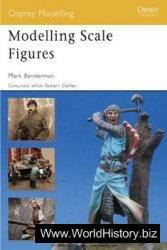The hydrogen bomb, which uses a fission bomb to ignite thermonuclear fuel, marked a new and extremely important stage in the nuclear-arms race. Los Alamos worked on the hydrogen bomb during and after World War II, but did not come up with a workable design. The Soviet test of August 1949 provided a new impetus, and on January 31,1950, Truman announced that the
United States would develop the superbomb, as the hydrogen bomb was known. The "Mike" test on November 1,1952, produced an explosive yield of 10 megatons, demonstrating that the United States had now mastered the basic design concepts (staging and radiation implosion) that made the superbomb possible. In the spring of 1954, the United States conducted a series of thermonuclear tests in the South Pacific, and one of the devices tested was more than 1,000 times more powerful than the bomb dropped on Hiroshima (15 megatons of TNT equivalent, as opposed to 13.5 kilotons). The Soviet Union did not lag far behind. In August 1953, it tested an intermediate type of hydrogen bomb, and in November 1955 it conducted a test that showed that it too knew how to build a superbomb.
Public opinion around the world was shocked by these tests and by the dangers that thermonuclear weapons presented; the tests gave a powerful impetus to antinuclear movements in the United States, Europe, and Asia. The political leaders of the three nuclear powers - Britain had tested a fission bomb in October 1952 - were also shaken. After his election as president, Dwight D. Eisenhower received a report on the US Mike shot. He was troubled by the report and in his inaugural address declared: "science seems ready to confer upon us, as its final gift, the power to erase human life from this planet."594 On March 9, 1954, Winston Churchill, who was once again prime minister, wrote to Eisenhower after reading an account of that same Mike shot: "You can imagine what my thoughts are about London. I am told that several million people would certainly be obliterated by four or five of the latest H Bombs."595 On March 12, 1954, the Soviet premier, Georgii M. Malenkov, made a speech in which he said that "a new world war _ with modern weapons [would mean] the end of world civilization."596
Eisenhower was convinced that the Soviet leaders did not want war, because war would put at risk their hold on power, but the prospect of growing Soviet nuclear strength impelled him to make sure that the Soviet leaders understood just how destructive a nuclear war would be. At the Geneva summit in July 1955 - the first meeting of Soviet and Western leaders since Potsdam ten years earlier - he made a special effort to impress upon them the terrible
Consequences of a nuclear war, pointing in particular to the danger of nuclear fallout. At dinner one evening he explained with great earnestness that the development of modern weapons was such that the country that used them "genuinely risked destroying itself."597 Because of the prevailing winds, he added, a major war would destroy the northern hemisphere.
The Geneva summit did not yield any major agreements, but Eisenhower returned to Washington believing, as he put it in a television broadcast, that "there seem[ed] to be a growing realization by all that nuclear warfare, pursued to the ultimate, could be practically race suicide."598 Anthony Eden, the British prime minister, drew very much the same conclusion: "Each country present learnt that no country attending wanted war and each understood why _ this situation had been created by the deterrent power of thermo-nuclear weapons."599 Khrushchev recalled in his memoirs that he returned from Geneva "encouraged, realizing that our enemies probably feared us as much as we feared them."600
By the mid-1950s, the political leaders of each of the nuclear states understood that nuclear war was unacceptable in some profound, if ill-defined, way. Each of them knew that the others understood this too, and each of them knew that each knew that the others understood it. The unacceptability of nuclear war had thus become "common knowledge" among those who had the authority to launch nuclear weapons.601 The situation was neatly summed up by a comment Khrushchev made to an American official in April 1956: "Nearly everyone knew that war was unacceptable and that coexistence was elementary."602




 World History
World History









